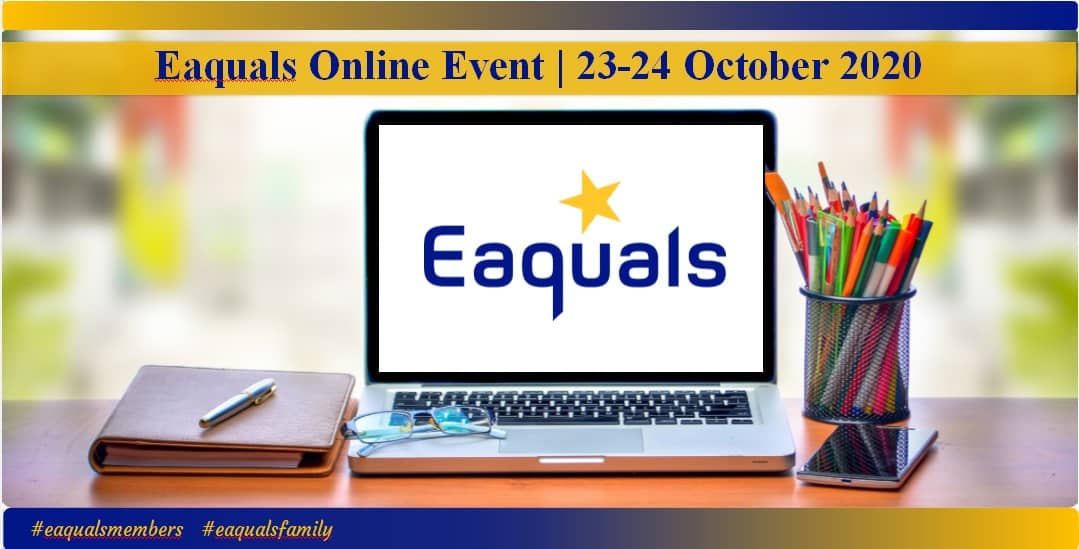Event Programme
Key: Sesson Types
23rd Friday Programme
Teachers and managers are facing unprecedented times. No training has ever prepared them for the current crisis. One unifying strategy to support all staff is to ‘cope with kindness’. This means reflecting on how we can be kinder to ourselves to give us the strength and resilience to meet challenges but also how we can be kinder to others. In this talk, we will discuss specific kindness strategies for wellbeing: GRACE: Gratitude, Respect, Acceptance, Compassion, and Empathy
Presentation Session | The Mental Health of Language Teachers during and post Covid-19. The future for working environments.
Following a well-received presentation at the IATEFL conference 2018 and a corresponding blog post about research into the mental health of English language teachers, this presentation will bring things up-to-date for October 2020. Given the global pandemic, there have been significant changes to the way we work and our working environments. How has this affected our mental health and what are the implications for the future as we either continue to work online, return to the physical socially-distanced classroom or even attempt hybrid teaching?
When we talk about employee well-being, we need to be ready to listen and empathise. However, we also need to help employees share responsibility because we all want to work in an environment where our duties and those of our co-workers, our expectations and theirs, our stress levels and theirs have a positive effect on our physical health and overall happiness. Just as our academic staff create learner-centred lessons, we need to create an employee-centred environment.
A key managerial competence is that of effective planning. This ability is built on a combination of an understanding of the variables of our context and how our strategies to engage with these might work. This combination is often an outcome of experience – either personal or organisational.
So in a situation where these structures have been removed, what approaches can we look to? We’ll talk (among other things) about Bright Spots, Appreciative Inquiry, Systems Analysis and Distributed Leadership.
24th Saturday Programme
Plenary Session | From emergency remote teaching to sustainable online education: dilemmas and solutions
With COVID-19 forcing institutions to move instruction online, a new approach to education has emerged; that of emergency remote teaching (ERT). According to recent research (Mavridi, 2020), ERT proved to be a good response to the crisis but there are concerns that, in the long run, it may not be pedagogically sustainable. This plenary will argue that institutions should now move away from emergency solutions to more robust educational models. How can they redesign the learning experience according to sound, tested and engaging online pedagogies? What would this shift involve? What are the practical and pedagogical considerations for the language teacher, teacher trainer and manager?
Presentation Session | Digital Transformation in Standardized Assessment and Teaching Academic English Skills
This presentation will provide insight into the increased necessity of digital transformation in standardized assessment of academic English skills amid COVID-19. The presentation will provide an example of at-home testing, TOEFL iBT® Special Home Edition, and explore how Educational Testing Service has met the highest standards of validity and reliability with the adoption of various measures: real-time human monitoring and artificial intelligence technology. This session will also present digital resources for academic English developed by ETS, which can support instructors
While the online and face-to-face classroom might share a number of similarities, there are also many significant and impactful differences. Not least amongst these is the sense of camaraderie and community that exists in the face-to-face classroom. In this webinar we’ll explore why creating a safe, supportive online community is so important to success in the online classroom, before looking at how we can achieve this through both synchronous and asynchronous methods.
As more courses move online, promoting quality in that provision needs a different emphasis to the face to face inspections of face to face courses which we used to be familiar with.
And as we have realised that we can all achieve a lot more online, it’s now a sensible option to complete online inspections – even of face to face provision.
This session looks at both sides of this online future.
Based on feedback – (via questionnaires) from students, both adult and teenagers, parents, sponsors, as well as teaching staff in Friuli Venezia Giulia (NE Italy) – we gained insights, and learned lessons, about the initial and on-going impact of the pandemic and, much more importantly, about useful applications for the future.
Going beyond the pros and cons of distance vs face-to-face learning, this presentation will highlight the insights we have gained for the future: in didactics and pedagogy, assessment (especially the quirks of on-line oral assessment), and cognition.

























